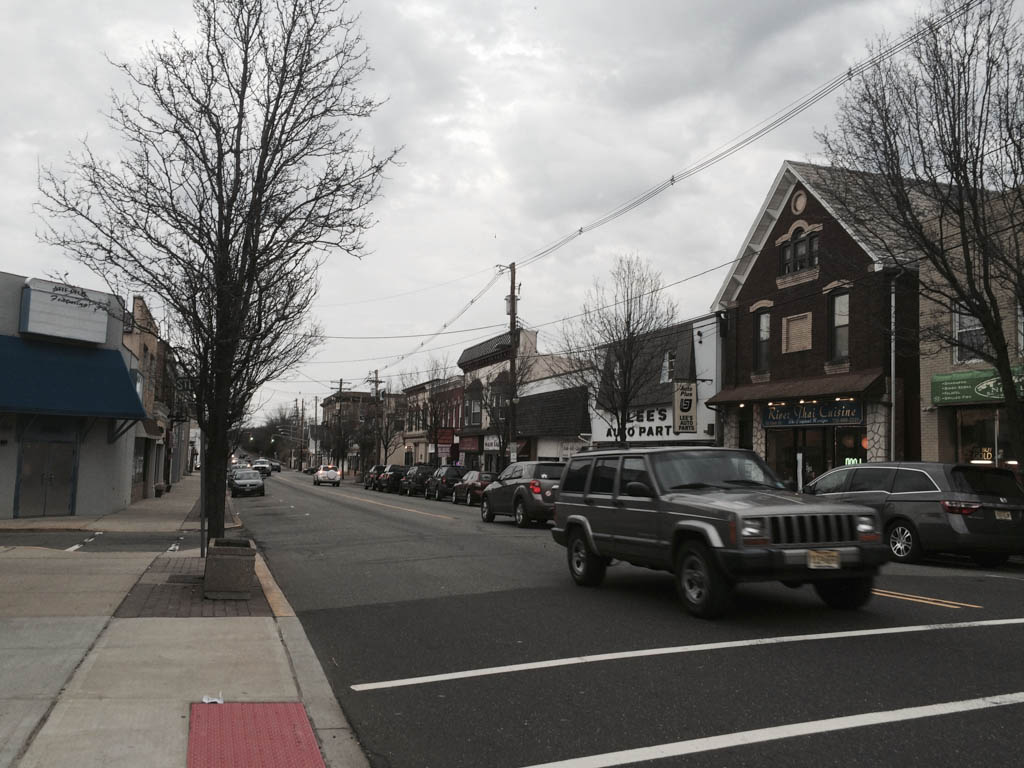By MICHAEL NUNES
Staff Writer
SOUTH RIVER — The next phase of redeveloping the borough’s downtown is in the council’s court.
At the Feb. 16 borough planning board meeting, members voted 6-1 to recommend that the area be classified as an area in need of redevelopment.
The board approved of a study done by Todd Bletcher, of Bignell Planning and Consultants Inc., which focused on roughly 160 commercial properties along a section of Main Street stretching from the corner of Gordon Street east towards the War Memorial Bridge as well as from George Street south to Jackson Street. Also included in the study are properties along Ferry Street.
According to Bletcher, within the parameters of the survey, in order for a property to be classified as in need of redevelopment, it must meet at least one of eight criteria, including being deteriorated, abandoned, public-owned or vacant for 10 years, of an obsolete layout or design, stagnant or lacking proper use, damaged by natural disasters, deemed an urban enterprise zone or deemed consistent with Smart Growth principles.
All properties in the study area qualify under the last criteria and at least one more, said Bletcher.
The aim of redevelopment gives property owners as well as outside businesses the opportunity to invest in the borough, Bletcher told a room of property owners at the planning board meeting in January. Existing property owners would have the opportunity for special grants and financing programs.
The redevelopment study outlines a non-condemnation process, meaning participation in plans from the borough is voluntary, according to the board’s attorney Thomas Barlow.
“No one from the borough is going to any property owner to force them to be part of anything that the owner declines to be a part of,” said Barlow, of Lombardi and Lombardi P.A.
“There is no condemnation, there is no eminent domain. I would hope that property owners would want to work with the borough, but if property owners don’t want to participate in a program or deal with any redevelopment of individual properties, they have the right [to do] so,” he continued.
Some residents spoke during the meeting’s public comment session to express concern over the process.
“Redevelopment is a great thing, provided it has transparency,” said Magdi Mikhail, who owns multiple properties in the borough. He expressed concern about the future of the process and what it would mean down the road for property owners.
Some members of the audience, including Councilman Shawn Haussermann, called for the vote to be delayed until it could be assured that all the complexities of the study were addressed.
“Some of the things that are said here need to be clarified. Some of the things come off as so easy, then you ask a couple of questions and you find that [it’s more complicated],” said Haussermann. He said the vote should be tabled and that it is not the right time for the council to ask the planning board to study the area.
Other residents spoke in favor of the redevelopment, saying that this could be the change the town needs to re-invent itself.
“At the end of the day we have to realize that unless things change, they will never get better,” said Norman Diaz, who is a member of the borough’s Economic Development Commission.
“The future of this town is through reorganization or redevelopment, whether people accept it or don’t accept it. You’re not going to attract young people, new investors, new business or even create an atmosphere for the current business owners to invest more money [without a change]. In my opinion, redevelopment is a good thing,” he concluded.
“The thing that scares me about the town is that everyone is so afraid of change. … I will say to the board, please pass this study on to the council,” said Mark Silva, who owns the Portuguese Fisherman restaurant on Ferry Street.
According to Cynthia Urbanik, the vice president of the board, four property owners who are in the parameters of the zone already expressed they do not want to participate.
Urbanik, who was the lone vote against the study, pointed to errors in the report that should be worked out before a recommendation was given to council.
“There was an objection made in writing by someone who went to the extent to hire an attorney to point out that they did not fall under the criteria that they sustained fire or flood damage,” she said.
“If there is one error in a document that is as important as this, the whole document really has to be re-examined and revisited for its accuracy to make sure all the properties do indeed fall under one of those criteria.”
The planning board has nine members. Two members, Mayor John Krenzel and Jim Jones, did not vote due to a recommendation from the planning board attorney because Krenzel arrived late to the meeting and Jones was unable to attend the prior planning board meeting in January in which the board heard the presentation of the study.
The council was expected to receive the recommendations from the planning board at its Feb. 22 meeting.

